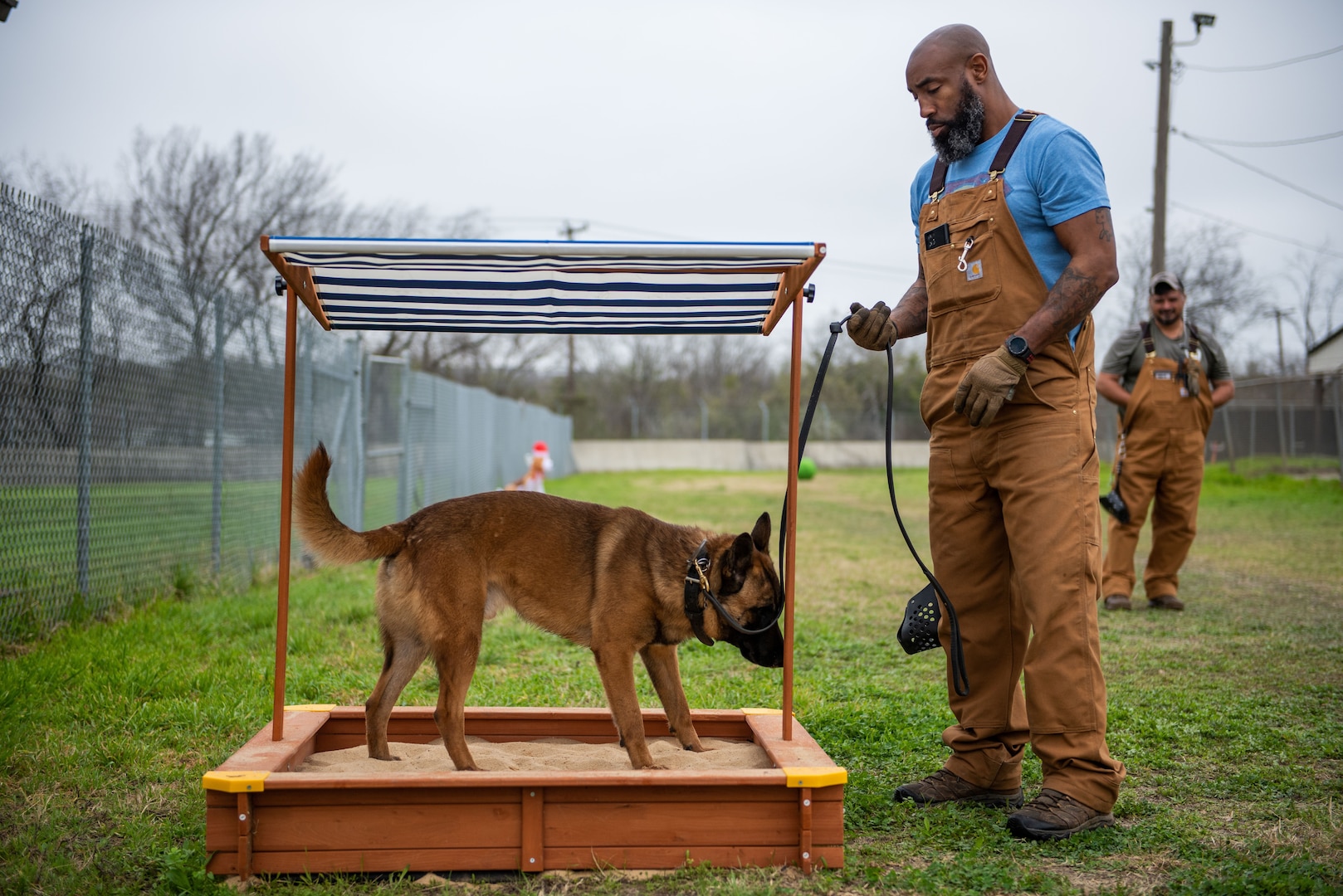Top Canine Training Tips for a Well-Behaved Friend
Training your pet to be a well-behaved companion calls for a nuanced understanding of canine habits and the implementation of effective techniques. Necessary commands such as "Sit," "Remain," and "Come" act as the structure permanently manners, while favorable reinforcement strategies can significantly boost knowing. Furthermore, developing a consistent routine and prioritizing very early socializing are important elements that add to an unified connection. The journey to a well-mannered animal entails even more than simply these fundamentals; it demands a much deeper exploration of strategies that can transform your training technique.
Comprehending Pooch Actions
Comprehending canine actions is necessary for reliable pet dog training and promoting a harmonious partnership in between pet dogs and their owners. Canines are complicated animals, exhibiting a large range of behaviors affected by genetics, atmosphere, and socializing. Recognizing the underlying inspirations for a pet dog's activities-- such as worry, enjoyment, or territorial impulses-- can considerably enhance training performance.
Observing body language is an essential element of recognizing canine behavior. Tail setting, ear positioning, and posture can offer important understandings into a dog's emotion. A wagging tail does not constantly suggest joy; it can likewise represent anxiety or anxiousness. Moreover, social interactions with various other pet dogs and people play a vital role in shaping actions. Pets that experience positive socializing are normally extra adaptable and courteous.

Important Educating Commands
Mastering essential training commands is critical for developing efficient communication between canines and their owners. These commands offer as the structure for a well-behaved pet dog and can dramatically improve the overall relationship in between pet dog and proprietor.
Trick commands include "Sit," "Stay," "Come," "Down," and "Heel." The command "Sit" is frequently the first shown, as it encourages calmness and emphasis. "Remain" reinforces a pet dog's ability to stay in one setting, advertising self-discipline. "Come" is important for safety and security, guaranteeing that your dog returns to you when called. "Down" instructs your canine to lie down, which can aid in taking care of fired up actions. Dog training near me. Lastly, "Heel" instructs your dog to stroll alongside you, cultivating much better leash manners.
Practicing these commands in various atmospheres assists dogs generalise their training and respond properly, no matter of distractions. By spending time in showing these vital commands, proprietors can grow a harmonious and respectful relationship with their canine buddies, enhancing both security and satisfaction in everyday communications.
Favorable Reinforcement Techniques
Favorable support techniques are important approaches in pet training that concentrate on gratifying desired behaviors to urge their reoccurrence. This technique leverages the natural knowing procedures of pet dogs, enabling them to connect certain activities with positive outcomes. By using treats, praise, or play as incentives, instructors can efficiently motivate pet dogs to duplicate the behaviors they intend to enhance.
To apply positive reinforcement, it is vital to provide incentives quickly after the wanted actions takes place. This assists the dog make a clear connection between their action and the incentive. Uniformity is additionally important; incentives must be offered every single time the wanted actions is displayed during the first training phase, slowly transitioning to a variable routine as the behavior ends up being much more trusted.
In addition, choosing the appropriate kind of benefit is important. While deals with are often efficient, some pet dogs might respond far better to verbal appreciation or interactive play. Understanding your pet dog's choices can boost the training experience. Ultimately, favorable reinforcement cultivates a trusting partnership in between the dog and proprietor, making training a more pleasurable and efficient process that constructs a well-behaved buddy.

Socialization Strategies
Effective socialization techniques are essential for a pet's development, as they help establish an all-round and positive friend. Very early direct exposure to different settings, individuals, and puppy Training other pets is vital to stop behavior issues in their adult years. Start this process throughout the critical socialization period, which typically takes place in between three and fourteen weeks old.
Present your puppy to varied stimulations, such as various surfaces, sounds, and scents. Managed experiences with other pets and pleasant human beings can promote favorable associations. Young puppy courses are an excellent resource, supplying structured settings for social interaction and finding out fundamental commands.
Progressively increase the complexity of socialization experiences. Take your pet to parks, pet-friendly shops, and public events, making sure each encounter is positive. Observe your canine's responses and remove them from frustrating situations to prevent fear-based reactions.
Utilize favorable support to award calm and confident behavior during social interactions. Keep in mind, perseverance is crucial; each pet has its very own pace for changing to new experiences.
Uniformity and Routine
Developing consistency and routine in pet dog training is necessary for fostering a feeling of protection and understanding in your family pet. Pet dogs flourish on predictability; recognizing what to expect helps them feel safe and lowers anxiety.
Integrating an organized regimen into your training sessions also improves your canine's learning experience - Dog training near me. Set up day-to-day training sessions at the exact same time every day, ensuring that both you and your dog are mentally prepared. Short, frequent training sessions are a lot more efficient than long, irregular ones; go for 5 to 10 minutes of concentrated training numerous times a day
Incorporate training into everyday tasks-- reward your pet for resting prior to dishes or walking calmly on a leash. On the whole, a regular approach, paired with a structured routine, lays the foundation for a mannerly buddy, advertising a harmonious partnership in between you and your pet dog.
Verdict
Positive support techniques offer to motivate wanted actions, while very early socialization prepares pet dogs for varied settings. By highlighting these crucial elements, the bond between owner and pet dog reinforces, ultimately leading to an unified and meeting connection.